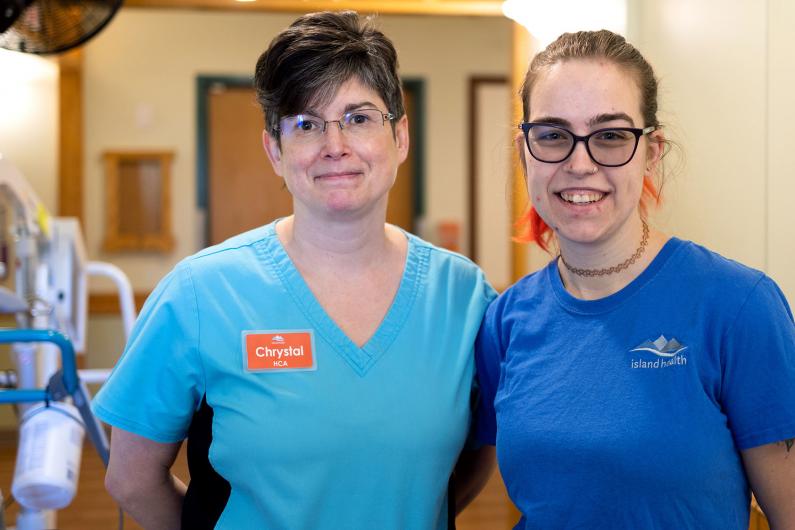
HEU members looking to change their career path are among thousands of care aides graduating through the province’s new Health Career Access Program (HCAP).
Hope Wason was a hospital housekeeper for two years, before enrolling in the program last year.
“It was a nice opportunity because financial restraint was a barrier for me going into further schooling,” she says. “It was nice to be able to do it without having to work a full-time job and go to school full-time.”
HCAP aims to increase the number of care aides working in B.C., and to remove financial barriers to health care assistant education. The program provides on-the-job training and education in partnership with established post-secondary institutions.
Participants receive paid employer-sponsored training for a period of 12 to 16 months, and also work as health care support workers in their facilities, providing non-direct care. Upon successful completion of the program, they will be qualified as a provincially recognized health care assistant (HCA), or care aide.
Chrystal Rose, an HEU care aide, has been providing mentorship to Wason and other HCAP students at Priory Hospital in Langford, near Victoria.
“They’ve been a great support,” she says. “They are extra eyes and ears on the floor. They provide lots of one-on-one contact with the residents, and all the little things that we often don’t have time to stop and do, because we’re run off our feet.
“I think everybody should welcome the program. HCAP is one way that we can work with recruitment, and trying to get people interested in coming into our career.”
Many health care workers hope the program will help address the crisis of workforce shortages in long-term care, assisted living, and home support.
“HCAP is a start,” says HEU secretary-business manager Meena Brisard. “And it’s only one of many initiatives that will be needed to transform the work shortage issues that we are seeing in long-term care.”
The 2022 B.C. budget includes $25 million to support an additional 2,000 seats for HCAP training. With the previous 3,000 who have already been selected for the program, this will result in a total of 5,000 new care aides.
Rose is looking forward to her site taking on a new set of students this year. “Let’s teach them all the things that we wished, and are grateful, that we were taught,” she said.
“I would tell anyone who is considering taking the program to absolutely take the opportunity,” says Wason, who will be among the first graduates of the program this year. “It’s a really good experience. And it definitely helped us to feel a lot more prepared for going into the real world as an HCA.”
By Loretta Laurin